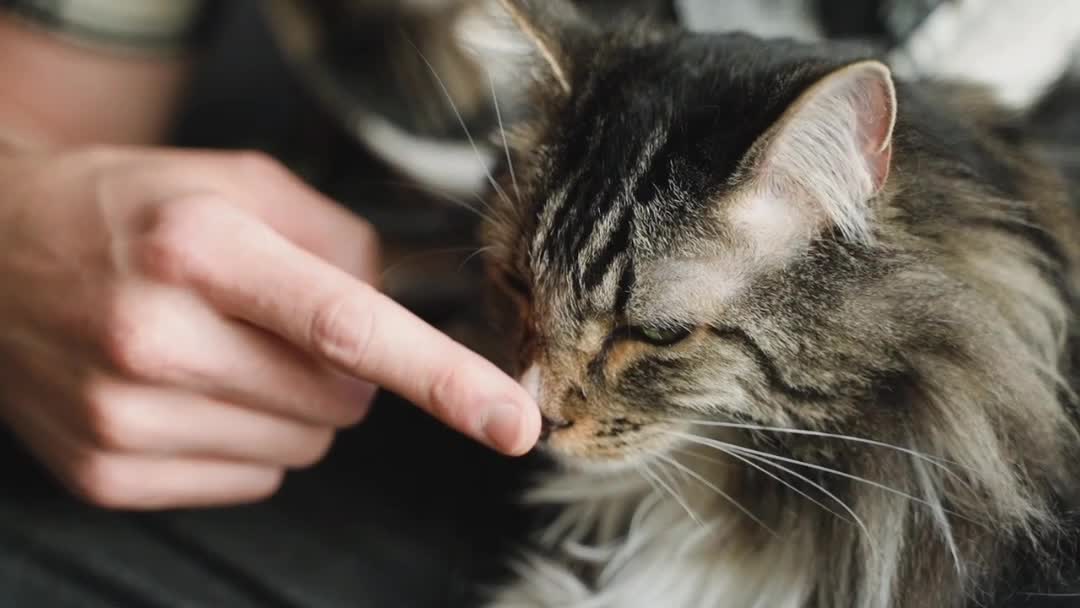Premium Only Content

Breed species of cats have sharp brain to do everything.
While some cats are perfectly content with never going outside and reigning supreme over their indoor kingdoms, other cats live duel indoor-outdoor lives. This can pose different threats.
Maniet says outdoor cats are exposed to more disease carriers. This includes other outdoor cats, feral cats, prey, worms, fleas, ticks, mosquitos, and a plethora of other insects.
“All of these carriers have the potential to transmit diseases such as viruses, bacteria, parasites, and many other infections,” Maniet said. “Also important to note is that the litter box of indoor cats can also present a risk of disease for humans in the household.”
What kinds of diseases? Gastrointestinal worms, giardiasis, ringworm, toxoplasmosis, plague — yes, that plague — and hantavirus infection, Maniet says. This is on top of typical allergens pet dander can create.
During the summer months, when ticks and other parasites are more active, pet professionals recommend regularly checking your cat’s fur and skin for potentially disease-spreading piggy-backers. This is good for both feline and human health.
The best way to reduce the risks of contracting these health risks from your cat, the CDC recommends, is for pet owners to regularly take their cats to the vet so they’re up to date on their immunizations.
What to consider when cuddling with a cat
While a cat’s independent nature may make it seem like it will do whatever it wants, many of our furry family members do like a cuddle. Maniet says there are a few things to consider before we do that.
The first, again, is the relatively low risk of disease transmission. One way to help mitigate that is to talk to your human doctors, including pediatricians.
“Adults and children with a compromised immune system due to certain human diseases may be at a higher risk for contracting diseases from animals,” Maniet said.
But, no matter your health status, there are some surefire signs that the cat should be left alone because it may be having its own health issues.
“Do not snuggle up to your furry friend if they are showing any signs of illness such as hair loss, skin rashes, sneezing, coughing, lethargy, vomiting, or diarrhea to name a few,” she said.
In cases like these, take your cat to the vet and make sure they have a clean bill of health before bringing your pet into the bedroom.
“Always have your pet checked as directed by your veterinarian to determine your pet’s overall health status and to make sure they remain disease-free,” Maniet said.
Whether they’re indoor or outdoor cats, there are many special moments that can be had with our furry family members.
Being aware of the risks that can come from sharing our beds with them can help us avoid health hazards and ensure many more purr-worthy moments with our favorite felines.
-
 LIVE
LIVE
GritsGG
5 hours ago#1 Most Warzone Wins 4015+!
75 watching -
 16:30
16:30
Stephen Gardner
3 hours ago🚨OVAL OFFICE EXPOSES TRUMP TAKEOVER – FILIBUSTER NUKED!
17.5K23 -
 LIVE
LIVE
The Rabble Wrangler
15 hours agoThe Best in the West Dominates Battlefield
30 watching -
 LIVE
LIVE
cosmicvandenim
3 hours agoCOSMIC VAN DENIM
51 watching -
 1:34:03
1:34:03
Redacted News
4 hours agoBREAKING! CIA FURIOUS & EMERGENCY WHITE HOUSE MEETING - ISRAELI SPY CAUGHT MEETING WITH AMB HUCKABEE
128K114 -
 1:22:06
1:22:06
vivafrei
5 hours agoCFIA Goes After a REFUGE? Charlie Kirk Missing Evidence "Uncovered"? Democrats are Epostein Simps!
130K64 -
 1:44:33
1:44:33
The Quartering
6 hours agoTrump Calls For Hangings, McDonalds SNAP Controversy, The Demonic Relationship In Wicked & More
159K69 -
 21:40
21:40
Bitcoin Policy Institute
8 hours agoCongressman Warren Davidson Unveils the “Bitcoin for America Act” | Spotlight Series #1
36.4K -
 LIVE
LIVE
LFA TV
22 hours agoLIVE & BREAKING NEWS! | THURSDAY 11/20/25
799 watching -
 2:00:02
2:00:02
freecastle
9 hours agoTAKE UP YOUR CROSS- Let your eyes LOOK directly FORWARD, and your gaze be STRAIGHT before YOU!
23.3K22